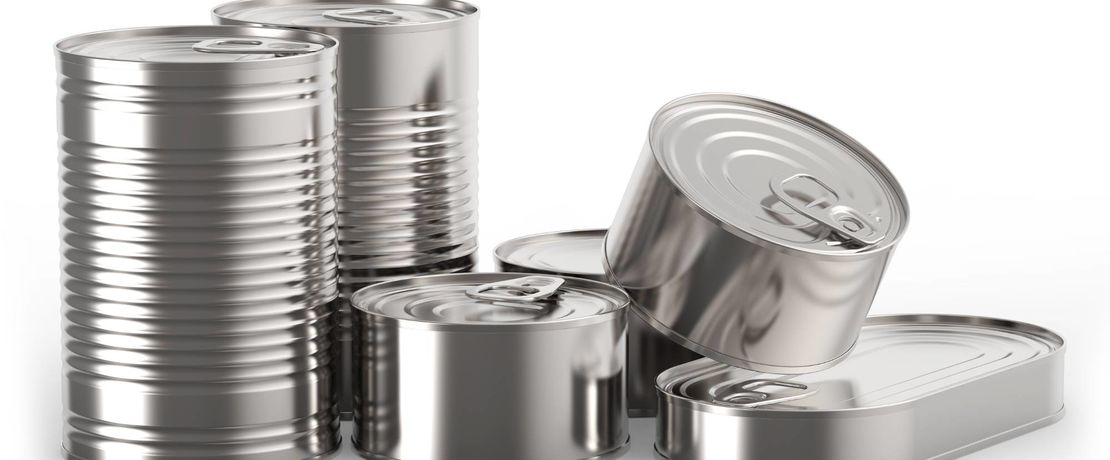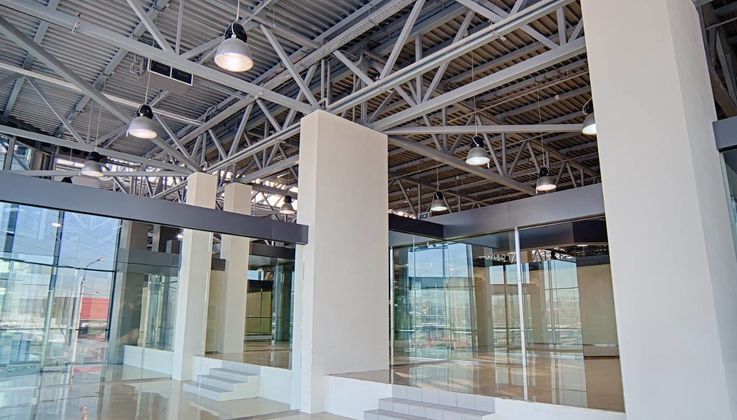
Interior linings for metal cans
About 200 years ago, metal cans revolutionized our way of keeping food. However, they are hardly out-of-date: Being a recyclable alternative to plastic packaging, the metal can market is growing fast. Thanks to lightweight polyester-based interior linings like DYNAPOL®, these containers can keep their promise of quality and purity.
It has become an indispensable part of our everyday life and can be found in every supermarket: the metal can
- an indestructible container for food of all kinds. The entry of the metal can onto almost all household shelves
in the world can be traced to none other than Napoleon Bonaparte. In 1795, Napoleon Bonaparte offered a prize of 12,000 francs to anyone who was able to supply his armies with durable food. The race was won by the Parisian confectioner Nicolas Appert with an invention that was as simple as it was ingenious: One fills food into jars, heats them and then seals them airtight – resulting in food products that can be kept almost indefinitely. In 1810 the British merchant Peter Durand used metal cans instead of jars to preserve food, and the metal can was born.
Today, the global canning market has reached a value of several billion US dollars and will continue to grow. Metal packaging is light, can be easily formed into the desired shape and size and is part of the recycling economy. They can be recycled practically without any loss of quality or purity.
In order to prevent any interaction between the metal wall and the actual contents of the can, an internal coating of the cans is essential. Just eight to ten grams of coating per square meter is sufficient to protect the can contents. Depending on the size, this corresponds to only about three grams per can. The demands on the coating are high: It must be particularly efficient and be characterized by high elasticity and resistance. This means that even if the can is dented, the food it contains remains well protected. Over the years, epoxy resin-based products have established themselves as the industry standard. However, these have been the subject of public discussion for some time now due to their raw material basis bisphenol-A (BPA).
Coatings based on polyesters are therefore increasingly being used. An important raw material for this is high-molecular polyester resins, which the Coating & Adhesive Resins Business Line markets under the brand name DYNAPOL®. They ensure that the interior coating is flexible and yet offers good resistance. In the production process, the cans thus withstand both mechanical forming and subsequent hot sterilization - and then provide reliable and long-lasting protection for the can contents.
With VESTANAT® B 1186 A, the experts of the Crosslinkers Business Line have developed a crosslinker that makes polyester-based can interior coatings possible. VESTANAT® B 1186 A thus meets the strictest requirements of the food safety authorities, which have approved the product as a particularly safe solution for interior can coatings for direct food contact.
With the wide range of DYNAPOL® polyesters and in combination with the crosslinker VESTANAT® B 1186 A, the right balance of flexibility, hardness, and resistance can be tailored for each application. More and more manufacturers rely on this combination for interior can coatings.



